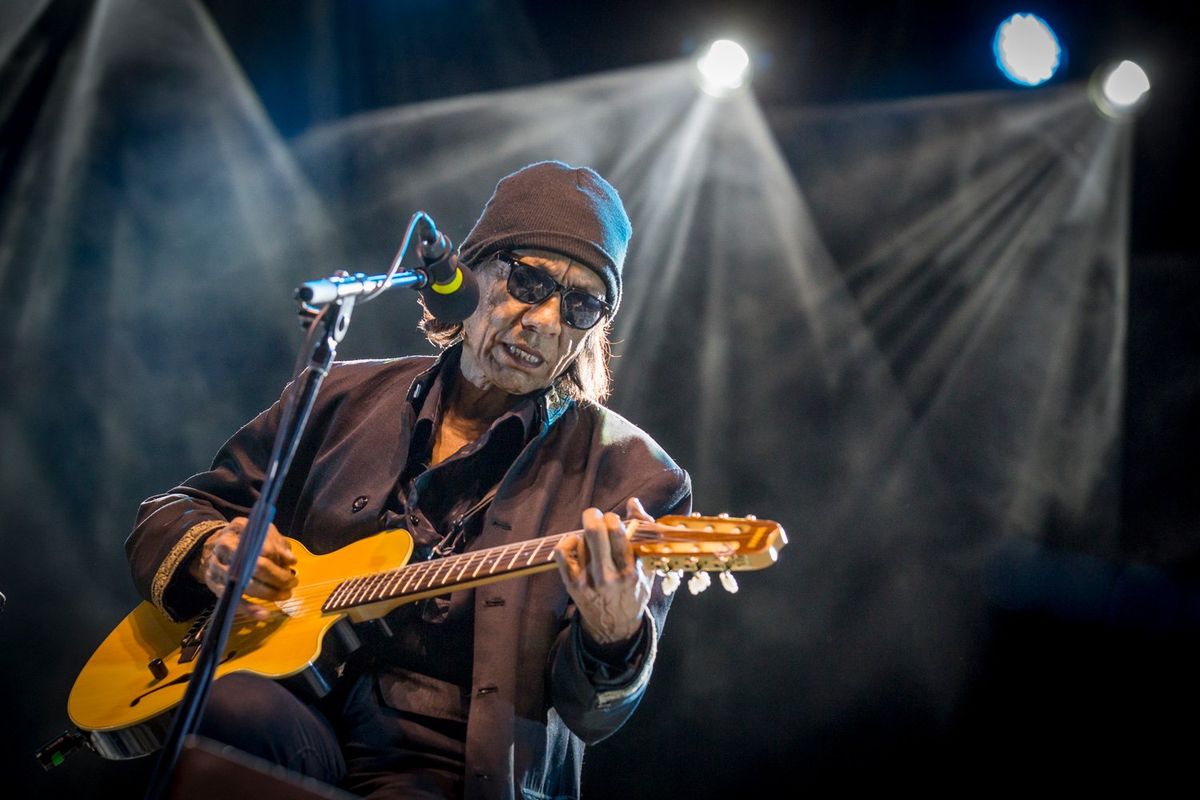Rodriguez, Singer-Songwriter Behind “Sugar Man,” Dies at 81
The iconic singer-songwriter who had a big impact in South Africa and was featured in the Searching For Sugar Man documentary has passed away.

Rodriguez performs on day 5 of the CityFolk Festival at The Great Lawn at Lansdowne Park on September 17, 2017 in Ottawa, Canada.
Sixto Diaz Rodriguez, the Detroit singer-songwriter better known simply as Rodriguez — whose seeming disappearance after a brief flirtation with musical success in the early 1970s was the subject of the Oscar-winning 2012 documentary Searching For Sugar Man — died today. He was 81.
A singer-songwriter heavily influenced by Bob Dylan and other 1960s-’70s confessional folk musicians, Rodriguez seemed poised for success, or at least a sustainable career in music when his 1970 debut album Cold Fact was released on the Los Angeles indie label Sussex Records. Already familiar in the Detroit area for his club and barroom performances, Rodriguez was hailed by some as the next Dylan.
Unbeknownst to Rodriguez, his music found a major following overseas — most significantly in South Africa. His albums sold in huge numbers and his songs became anti-apartheid anthems. Rumors about his death were rampant until eventually, Rodriguez made contact with fans in South Africa. He came out of retirement and went on his first tour of the country in 1998 to thousands of screaming fans.
Detroit singer/songwriter Rodriguez’s Cold Fact (1970) probably first arrived in South Africa by non-commercial means. The album was celebrated by a politically and culturally stifled public but severely censured by the apartheid regime. Any copies of the record meant for promotional use were subject to physical damage rendering a selection of songs unplayable on the radio.
Yet, Rodriguez's "Cold Fact" permeated thousands of South African households and adorned the shelves of record stores. While the album exuded a certain political cynicism, a characteristic not entirely foreign to the American scene, its forthright dissection of political spheres and its celebration of the counterculture ethos resonated as authentic protest melodies within the South African context. Amidst its portrayal of an urban landscape in decline, tracks like "The Establishment Blues" and "I Wonder" metamorphosed into resounding anthems against apartheid and the constraints of cultural orthodoxy, serving as rallying cries for many within the South African populace. Despite standing toe-to-toe with the popularity of mainstream American hits in the country, the enigmatic artist behind the work remained virtually unknown to the eager listeners of South Africa.
The lost-and-found tale made for a captivating documentary, and Searching For Sugar Man would go on to win, among other accolades, the 2013 BAFTA Award for Best Documentary and, that same year, the Academy Award for Best Documentary Feature. The success of the documentary generated considerable interest in Rodriguez, and after its release, the singer made appearances on The Late Show with David Letterman and The Tonight Show with Jay Leno. Rodriguez continued to perform at various venues for much of the next decade.

